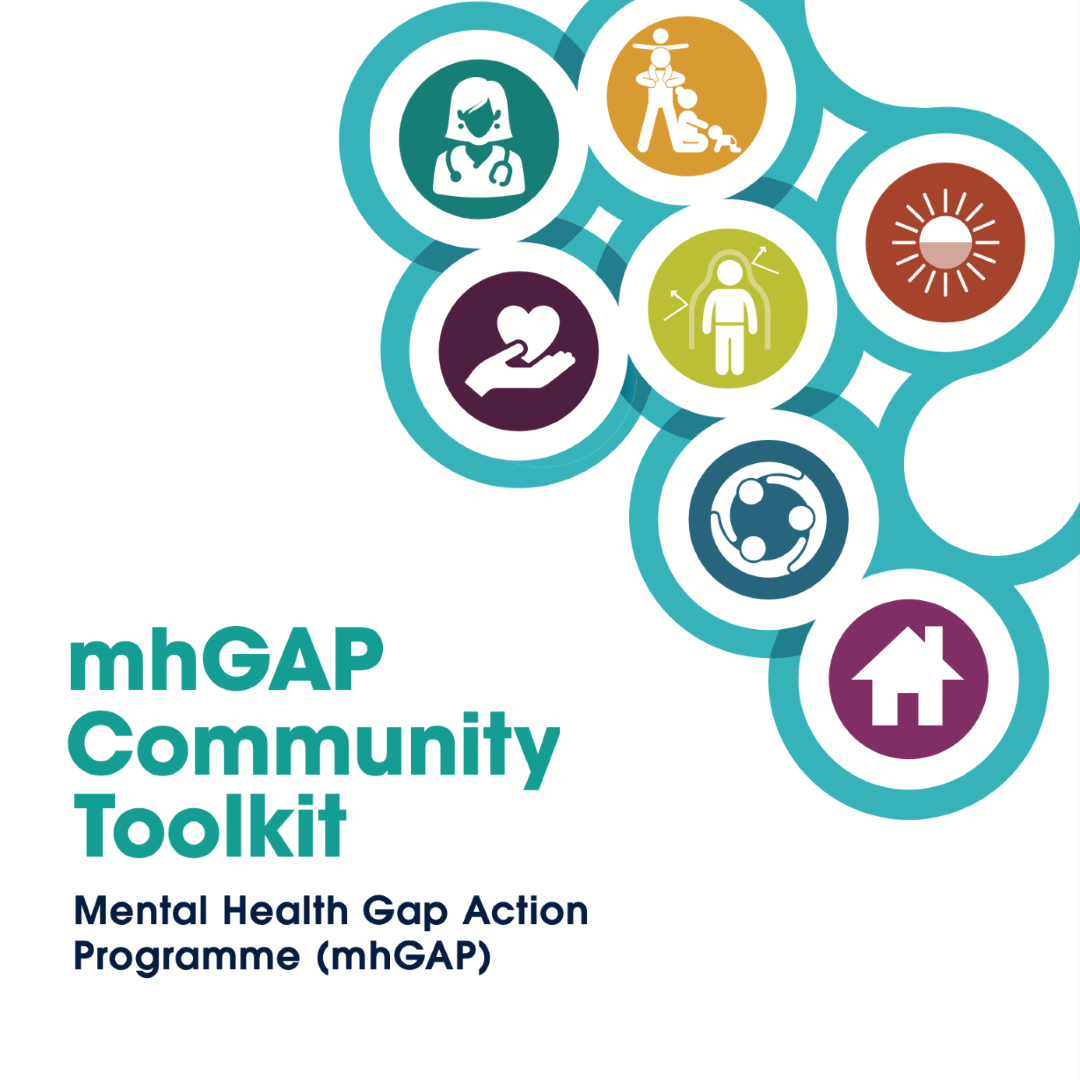mhGAP tools for the use in the community. Training of Trainers - 2022

This course has ended. It was offered from June 2022 to July 2022. Here you can access the different knowledge resources (bibliography, readings, videos, guides, etc.), used during the course.
The communication spaces, exchange forums, and some activities/materials have been hidden because they were for exclusive use of the course participants.
No certificates will be issued for visiting these materials.
These are materials developed for teaching purposes in the context of the VCPH.
Please note that some materials may not be updated or there might be more recent versions, and the ones that are included here are only an archive of Campus resources.
The Mental Health Global Action Program (mhGAP) states that “mental health conditions are common in all regions of the world and have a significant impact not only on the health and well- being of those affected but also on their families, friends and the communities they live in. At the same time, communities contain a wide range of resources that can be used to promote mental health and to support the recovery of people with mental health conditions”. Therefore, the mhGAP-Community Toolkit was developed in line with the expansion of the mental health services beyond the primary health care with the following recommendations:
- Highlighting the opportunities that exist within communities to promote mental health, prevent mental health conditions and expand access to mental health services;
- Providing guidance on how to identify local mental health needs and match them with activities that build on available resources and opportunities while engaging the local community;
- Providing practical tips on delivering mental health activities, programmes and interventions in the community;
- Combatting stigma, discrimination, social exclusion, and human rights abuses that affect people with mental health conditions.
To reduce the existing gap between the needs of the population and the existing resources and to promote the implementation of the mhGAP-Community Toolkit, a virtual training of trainers in the Americas region is proposed, followed by the identification and subsequent training of community agents.
Purpose of the course
The purpose of the course is to help managers and/or those responsible for community programs to identify the mental health needs of the local population and to train the trainers of community service providers in community mental health interventions to respond to these needs.
Learning objectives
The following objectives can be defined:
- Gain an in-depth understanding of the mhGAP – Community Toolkit and develop implementation skills.
- Acquire the methodological skills (exposition of content, role play, case studies, modeling, group work, etc.) and pedagogical skills to conduct a training course for professionals who are not specialists in community mental health.
- Acquire skills to conduct follow-up and provide supervision of training courses and community mental health interventions proposed by mhGAP-Community Toolkit.
Target audience
The course is intended for managers and/or those responsible for community programs with a fundamental role in the training of staff who work with and for the community. Experience in community mental health is desirable.
Course structure and contents
The course is made up of 5 modules:
Module 1: The Basics of Community Mental Health
Module 2: Mental health promotion and prevention of mental health conditions (Axis 1)
Module 3: Provision of community support in mental health (Axis 2)
Module 4: Recovery and rehabilitation in community mental health (Axis 3)
Module 5: Monitoring & Evaluation of community mental health training and intervention initiatives
